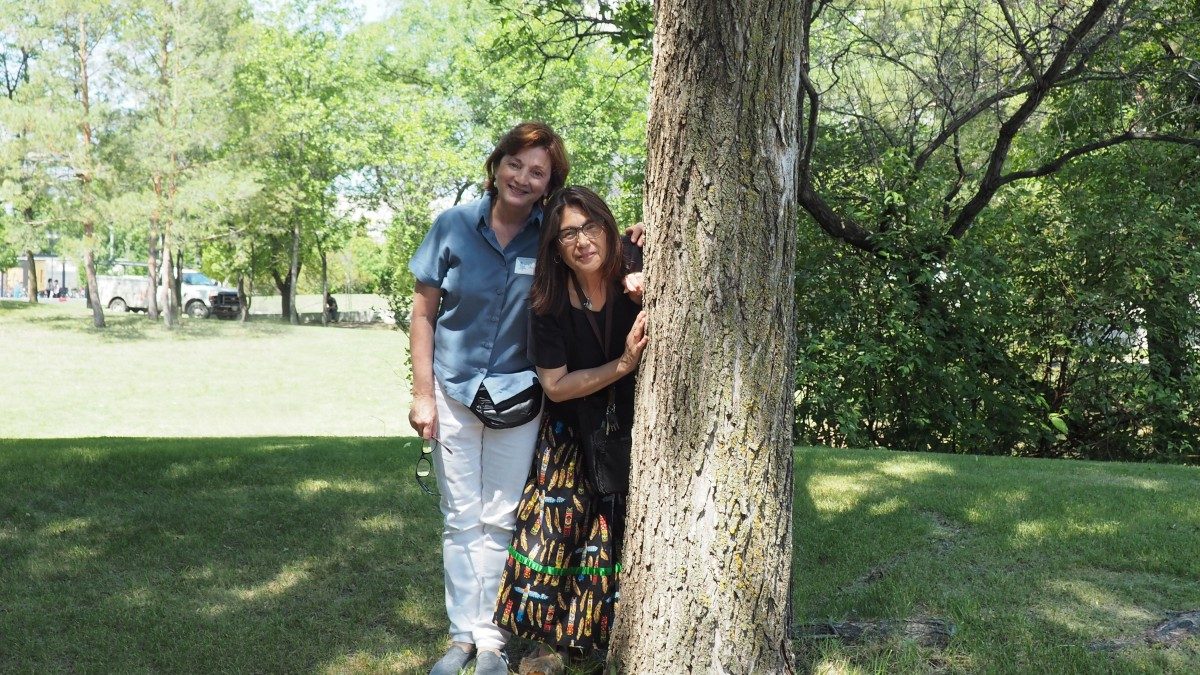
Finding understanding and new perspectives with ‘gwayakotam: he/she seeks to find the truth’ workshop
To develop a resource that helps faculty integrate Indigenous perspectives into their courses in a culturally sensitive and relevant way, Leah Fontaine, Indigenous Initiatives Educator with the Centre for the Advancement of Teaching and Learning (The Centre), developed the ‘gwayakotam: s/he hears the right thing, finds out the truth’ workshop.
Participants joined the workshop on June 20 to experience a morning KAIROS blanket exercise that simulated the histories and stories of colonialism. In the afternoon, they deconstructed the blanket exercise simulation in a discussion. Participants examined how histories and stories of colonialism manifest themselves in post-secondary classrooms. They also discussed how “gwayakotam” strategies are being used and could be further developed in classroom settings.
“A professor said to me, ‘I have Indigenous students and I don’t know how to interact with him,’” explained Fontaine. “They need assistance and it’s not that they don’t have the knowledge. It’s that they don’t have the Indigenous knowledge.”
“It’s fantastic to see Leah, who has so much to teach us, organize the ‘gwayakotam’ workshop” said Pauline Broderick, former Faculty of Education Instructor and current editor of The Three Sisters: Renewing the World. “I’m delighted to see a skilled tenacious person on the frontlines making social change at our university. We are starting to understand that the disciplinary silos sometimes need to be not so rigid.”
A powerful teaching tool
Introducing how curriculums and pedagogy can be intersected with both Western and Indigenous perspectives, educators of all spectrums can create a common line that enhances and establishes relationship building. To promote successful teaching and learning in new and innovative ways, a common link is created between student and educator. The Sacred Hoops are a powerful teaching tool that demonstrates these connections.
“The Sacred Hoops are everywhere,” said Fontaine. “The Sacred Hoops on the ground connect everything. Part of the philosophy of Indigenous people is that we are all interrelated and interconnected. Animals. Environment. Peoples. We’re all connected. We’re all related.”
“It is great that the university is running workshop like ‘gwayakotam’,” said Broderick. “Of course, the question is how do we get that circle, and bring it into the pedagogies of our classroom? We are so focused on cognitive transmission. When we participate in something that gets our body involved, we are then emotionally and spiritually involved. So watching that pedagogy being implemented for a bigger picture is fantastic.”
‘Now I’m all by myself’
The KAIROS blanket exercise, developed in response to the 1996 Royal Commission on Aboriginal Peoples, offers a powerful interactive learning experience. Participants are drawn in by engaging on an emotional and intellectual level that effectively educate many, while also increasing understanding.
“Let’s get out of our chairs,” said Broderick. “Let’s move around. Let’s feel it. Let’s see it. Let’s experience it. Let’s feel myself alone on that blanket. Let’s see what it was like to do all of the trading and then all of a sudden I can’t reach you anymore. The power of the experience is so much more profound than the telling. The telling is an abstraction, but to actually feel the ‘I was trading with you a minute ago, and now I can’t reach across the blanket to touch you anymore and now I’m all by myself.’ You come away with the active meaning-making pedagogy that gets us up, moving and experiencing, which is very profound.”
Fontaine hopes participants leave the workshop with a greater consideration of balance and understanding. She hopes that people can look at the two worlds of Indigenous and non-Indigenous, and that the two worlds can work together towards reconciliation.






